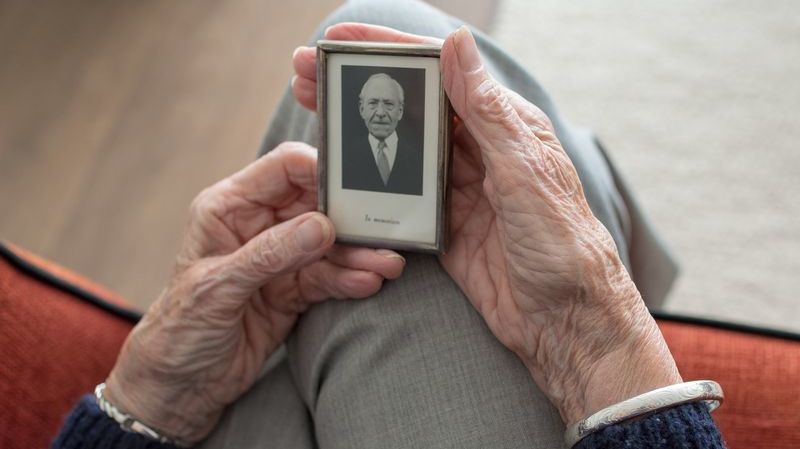
Alzheimer’s disease takes away the memories we have of our lives, robbing the brain’s ability to hold on to them. There’s no cure yet. But it’s possible that, with early diagnosis and treatment, memory loss might be slowed.
Jamie Reilly, director of Temple’s Concepts and Cognition Laboratory and associate professor in the Department of Communication Sciences and Disorders, has long held that treatment to help people maintain words and concepts they consider important, before dementia erases them, is a more promising approach than trying to restore already-forgotten words.
Reilly recently received a second five-year grant from the NIH National Institute on Deafness and Other Communication Disorders to extend a study that he has been conducting since 2014. The core of the study, working directly with dementia patients, is identifying 100 words that are important to participating patients and seeing whether training on that lexicon helps them keep those words for as long as possible.
“We go into the person’s house and take pictures of the hundred words—their spouse, their children, their pets, clothes, hygiene items—and create a picture book. Maybe someone really wants to hang on to the name of his granddaughter. So we put her in the mix,” Reilly explains.
Patients train on naming the items in the memory book and generating semantic features about them. “Which would be like, ‘This is Mary. Mary's your wife. You met her in Philadelphia. Mary is an engineer. This is Mary,’” Reilly says. “So you're naming, generating features, and naming again. We try to pick words they can get a lot of mileage from, words they can fit together to express ideas.”
The treatment is caregiver-friendly. Once the memory books have been made, loved ones or other caregivers can run through the exercises with patients. Researchers perform cognitive testing and neuroimaging throughout the process to determine retention of words and their meaning and explore any connections to cerebral changes. Testing on “untrained” words helps researchers judge whether the trained words are remembered better.
“We have just submitted some of the results of our first wing, and it does appear to work,” Reilly says. “People retain trained words but lose words that they haven’t trained on.”
The new five-year extension of the study, which began this year, continues and expands the research, bringing total funding for the project to more than $4 million. The study adds specific research with older African-American adults, an underserved population that has an elevated risk of Alzheimer’s, according to the Alzheimer’s Association. The new study will try to make sense of a quirk discovered in the first years of the study. During patient recruitment, the Montreal Cognitive Assessment test used to screen people for dementia was producing false positives in this population, raising questions about the test, Reilly says. “It may not be normed well,” he says. “Our controls were failing the test and looking like patients.”
The study also will add a physical treatment that Reilly has explored previously: the use of non-invasive brain stimulation via low-voltage electrical current. Semantic memory appears to use connections among different regions of the brain, and language loss may be the result of disrupted connections. Transcranial direct current stimulation (tDCS) has shown promise as a supplement to behavioral language therapy. Researchers will measure long-term language retention among patients who receive tDCS along with the memory-book exercises, compared to those who receive only the exercises.
Work to develop drugs to treat Alzheimer’s disease has been frustrating, marked by years of setbacks and failed trials, Reilly says. The next frontier may be gene therapy. There is hope, and the work from Reilly’s lab is helping scientists better understand the mechanisms of the disease. Meanwhile, any therapy that can slow its onset can be a substantial quality-of-life boost.
“It’s aimed at slowing the progression of dementia, trying to avoid functional impairment that leads people to go to nursing homes,” Reilly says. “If we can figure out how to protect words from being forgotten, then people can get a lot more mileage out of their time.”
